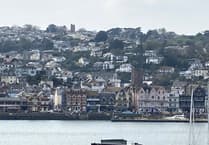We in the South Hams love our fish and chips but like many businesses the fish and chip industry was hit hard by COVID-19, meaning shops couldn’t cater to sit-down diners. Since then, a perfect storm of pressures has assailed the industry. Soaring costs for key ingredients, combined with doubling energy costs, mean chippies face a very real threat to their future.
These come from a 75 per cent price increase for cod and haddock – due to higher costs of fuel for fishing fleets and increased wages for processing labour, a 30 per cent hike on chips – because of higher fuel prices and increased costs of Russian fertiliser, a 60 per cent increase for sunflower oil – The price of sunflower oil jumped by this amount after the invasion of Ukraine, but they were already suffering due to increased demand from biofuels, plus pressures from climate change, a 38 to 45 per cent rise in packaging costs, a result of to the rise in price of paper, materials, labour costs and transit, a 120 per cent price rise for mushy peas – because of to inflation, rising fuel and labour costs and a 40 per cent surge for batter resulting from higher wheat prices, lower stocks and uncertainty in the wheat market.
Andrew Crook, the president of the National Federation of Fish Friers calls the crisis ‘the most dangerous threat to the industry in 160 years.’
‘“It’s already terrifying. I’m 22 years in the industry and I’ve been through a lot of scares. But we’ve got a crisis on a crisis and now the rise to minimum wage and potential return to 20 per cent VAT. I’ve never seen anything like it, it’s everything all at once.”
‘Your local fish and chip sector has absolutely no choice but to raise its prices or face insolvency’ comments insolvency practitioner Chris Andersen: “When an industry that traditionally works on tight margins finds every single one of its core ingredients rocketing in price, plus increase labour costs and taxes, you have a recipe for mass insolvencies.’ “The British fish and chip sector lies at the heart of our tourist industry as well as our national identity. All of us who visit the seaside this summer can support this great industry via seeing fish and chips not as a cheap alternative to cooking dinner, but as a tradition that’s worth paying a bit more for. If we don’t, we shouldn’t be surprised to find those same premises empty next year.”
Source data (Company Debt)




